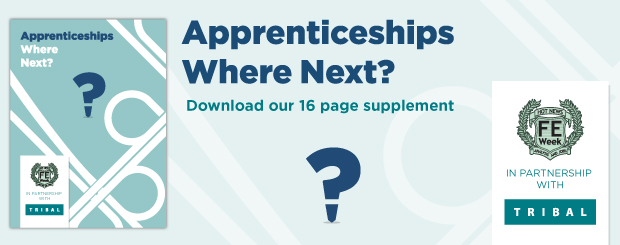New Challenges, New Chances’ has made it clear that English and Mathematics remain key elements of the Apprenticeship Framework. Whilst there are some who may feel uncomfortable with the change in terminology there are many others who recognise the importance of providing a single uncomplicated message about what these skills are and why proficiency in them is so crucial.
As The Wolf Report – the Review of Vocational Education – described it …qualifications for the critical labour market skills of mathematics and English have been subject to serial redesign, especially in the case of qualifications for students on ‘vocational’ programmes.
Now there is no longer any debate, the transition phase provided by John Hayes is coming to an end, and in August Key Skills will finally be replaced by Functional English and Functional Mathematics. I am aware that many providers are concerned with this change as they see the Functional Skills as much more extensive in terms of teaching and learning requirements, much more complex in terms of their assessment demands and therefore much more threatening in terms of levels of achievement and performance.
English and Mathematics skills are essential elements of a skilled individual”
However, in the context of apprenticeships those young people who have previously found little value in the academic side of English and Mathematics as subjects have the ideal opportunity to understand their importance as skills in a vocational context that is meaningful to, and valued by, them. In terms of developing English and Mathematics in apprenticeships, context is all and there are many case studies and examples of effective practice that highlight how best to develop, engage and motivate the most reluctant of learners.
The real challenge and the great unknown are unlikely to be the teaching and learning but rather the appropriateness and the applicability of the assessment regimes of the Functional Skills qualifications. Whilst in many ways Key Skills and Functional Skills are congruent in terms of teaching and learning, they are not in respect of the approaches to assessment that are on offer. Each awarding organisation has been given the opportunity to develop their own solutions that meet the Ofqual qualification criteria rather than adhere to a centrally developed assessment regime that is identical for all.
This means that for the first time within the apprenticeship framework there is a real opportunity for providers to select assessment regimes that match the rhythm and structure of their programmes as well as seeking out an awarding organisation that better reflects and responds to their needs.
So whilst we can expect some nervousness in the sector in the first instance I am confident that sooner rather than later the professionalism of providers, together with the market demands placed on AOs, will shape approaches to assessment that will meet the needs of those delivering Functional Skills in the context of apprenticeships.
There is concern in some quarters that the Government is about to make all apprenticeship frameworks irrespective of level have a minimum requirement of a Level 2 in Functional Skills or A*-C GCSEs. This is not my understanding; New Challenges, New Chances makes it clear that whilst a Level 2 achievement in English and Mathematics should be the aspiration for all young people in education and training, there is no intention of changing frameworks at this time.
Indeed the introduction of modular, or stepping stone, qualifications is designed to create a more realistic and viable journey towards Functional Skills and GCSEs for those who continue to find English and Mathematics a potential barrier to progression.
I know that there are those who would like to remove the English and Mathematics components from the apprenticeship framework. Their thesis is: why should the workplace address the failures of the school system? The answer to that is simple: English and Mathematics skills are essential elements of a skilled individual and these skills need to be developed in a place, at a time and in a way that has greatest benefit for and impact on the individual – for many young people that place, time and way is through an apprenticeship.
Barry Brooks
Group Strategy Director, Tribal
This expert piece appears in our special Apprenticeships Supplement. Click the banner below to download it!










Your thoughts